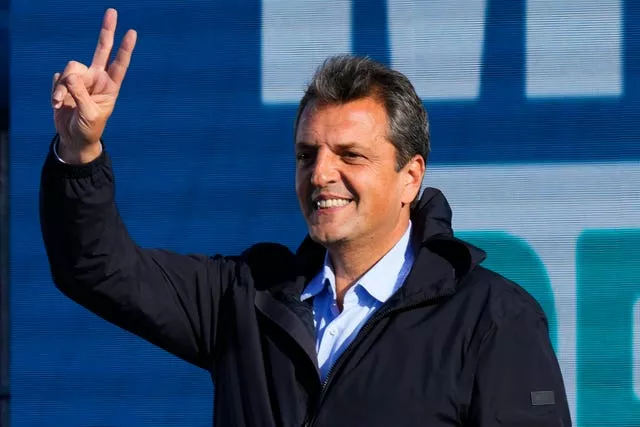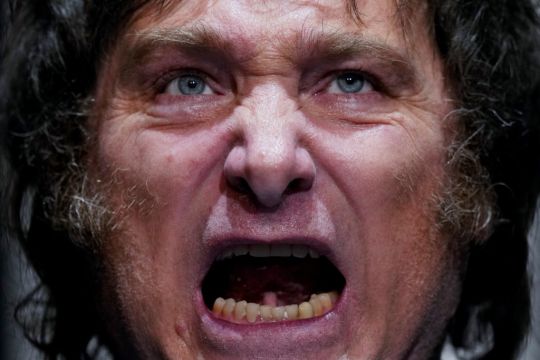Argentines have voted in an election that could see right-wing populist Javier Milei become president and bring in controversial measures to shore up South America’s second-largest economy.
Polls opened at 8am local time and closed at 6pm.
Voting was conducted with paper ballots, which made the duration of the count unpredictable, but initial results were expected around four hours after the polls closed.

The highly polarised election will determine whether Argentina continues on course with a centre-left administration or elects one of the right-leaning leaders who have both promised profound changes to a country plagued by triple-digit inflation and rising poverty.
Mr Milei, a self-described anarcho-capitalist who admires former US president Donald Trump, sent shockwaves through the nation after receiving the most votes in August primaries.
The economist and first-year legislator has said he will slash public spending, halve the number of government ministries, eliminate the central bank and replace the local currency with the US dollar.
He first made a name for himself with angry tirades blasting what he calls the “political caste” on television, and has gained support from Argentines struggling to make ends meet amid annual inflation of 140% and a rapidly depreciating currency.

His platform also calls for reshaping Argentine culture, and he casts himself as a crusader against the sinister forces of socialism at home and abroad.
Pre-election polls, which have been notoriously unreliable, gave Mr Milei a slight lead that would be insufficient to avoid a run-off in November.
Whatever the results, Mr Milei has already inserted himself and his libertarian party into a political structure dominated by a centre-left and a centre-right coalition for almost two decades.
Former security minister Patricia Bullrich of the main opposition coalition battled Mr Milei for right-wing support, and argued her team had the necessary connections and experience in negotiating legislation to bring about the change the country needs.
Economy minister Sergio Massa, a leading figure in the centre-left administration which has been in power since 2019 and is in second place in most polls, sought to rally support despite the fact inflation has soared on his watch.

He blamed recent troubles on a historic drought that decimated exports and said he prevented things from getting worse.
“The worst is over,” Mr Massa often said at his rallies.
On the streets of Argentina, citizens are sceptical of this, and they are bracing for impact.
Those with any disposable income are snapping up goods in anticipation of a possible currency devaluation. The day after the primaries, the government devalued the peso nearly 20%.
Argentines are also buying dollars and removing hard currency deposits from banks as the peso accelerated its already steady depreciation.
In order to win outright, a candidate needs to receive 45% of the vote, or 40% with a 10-point difference over the runner-up.
Around 35 million Argentines were eligible to vote, though around a quarter of the electorate typically abstains.







